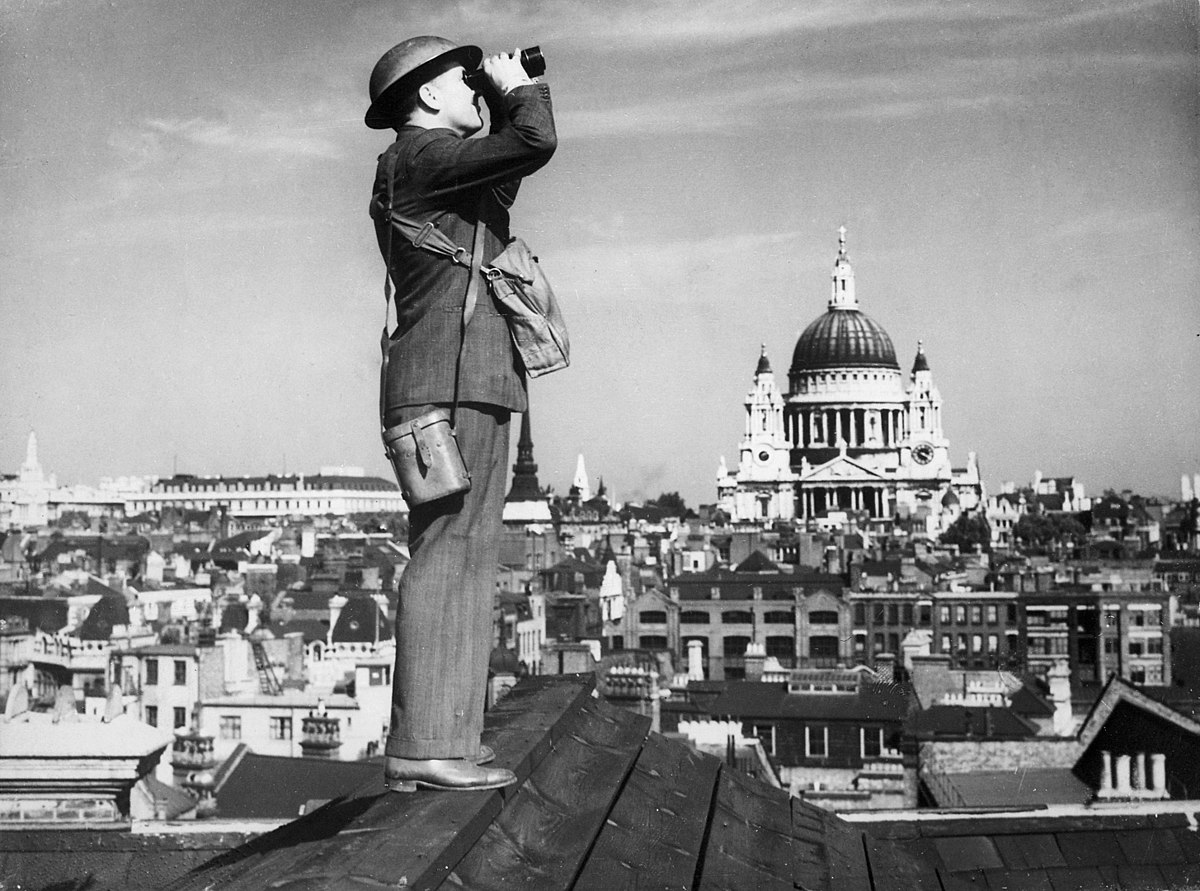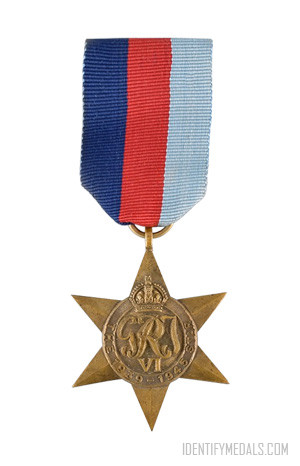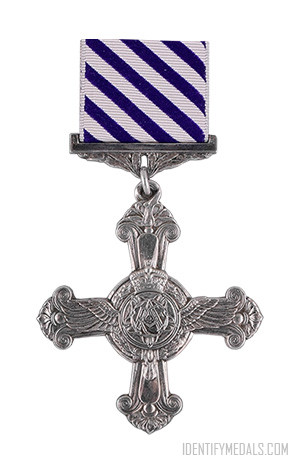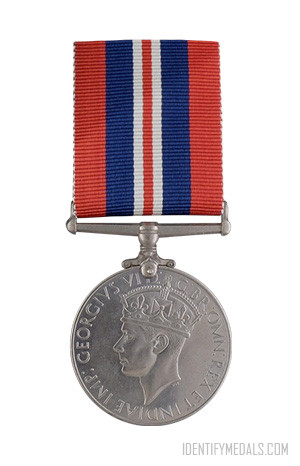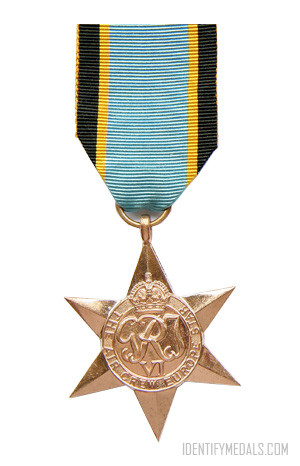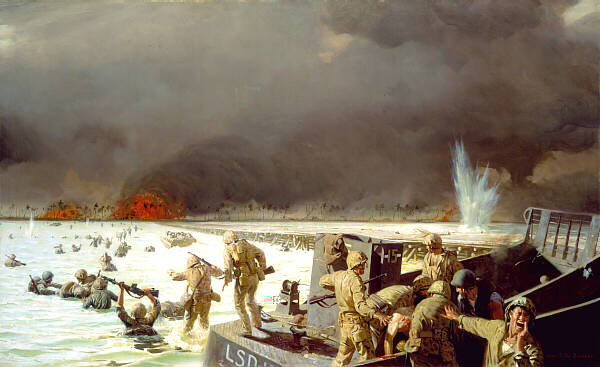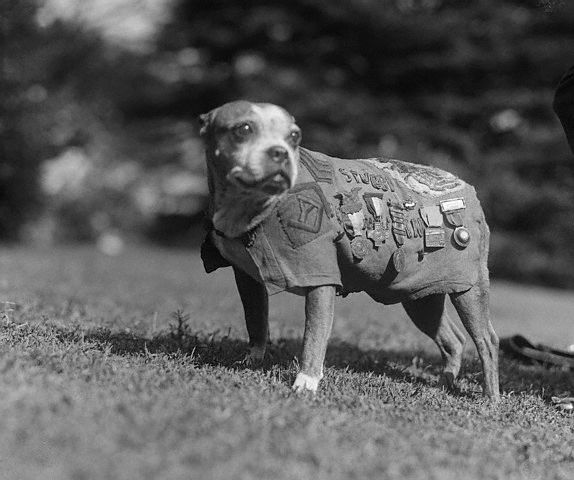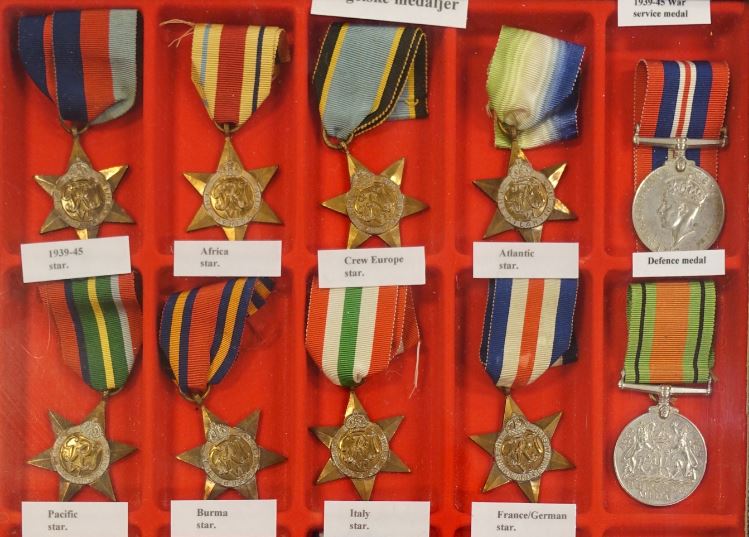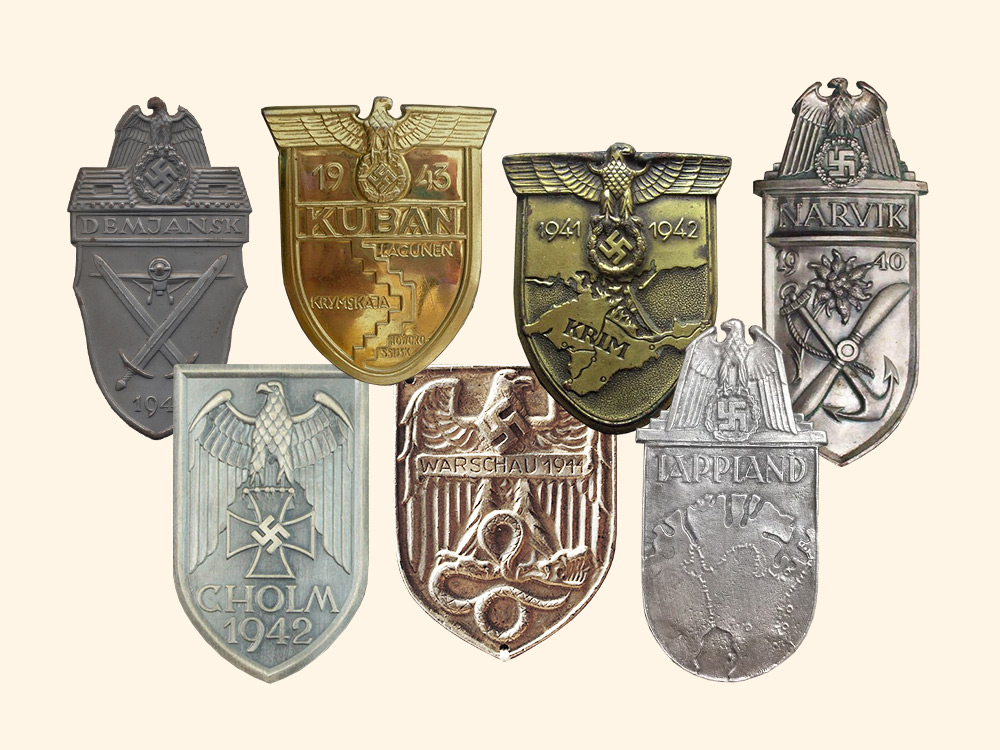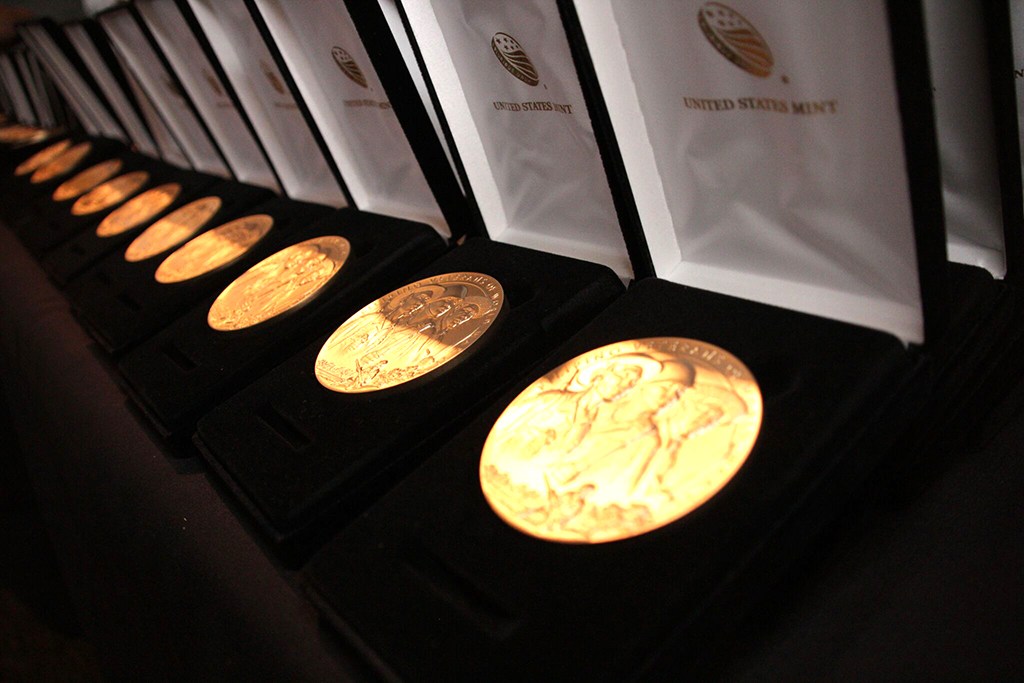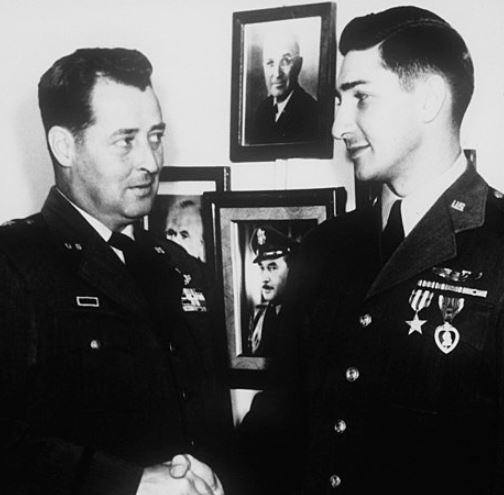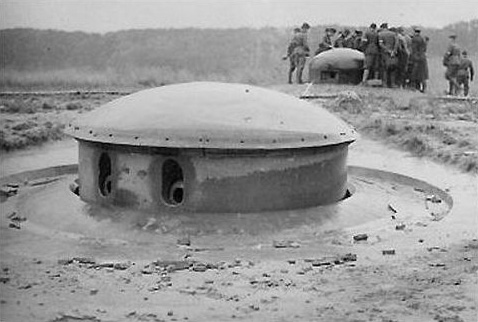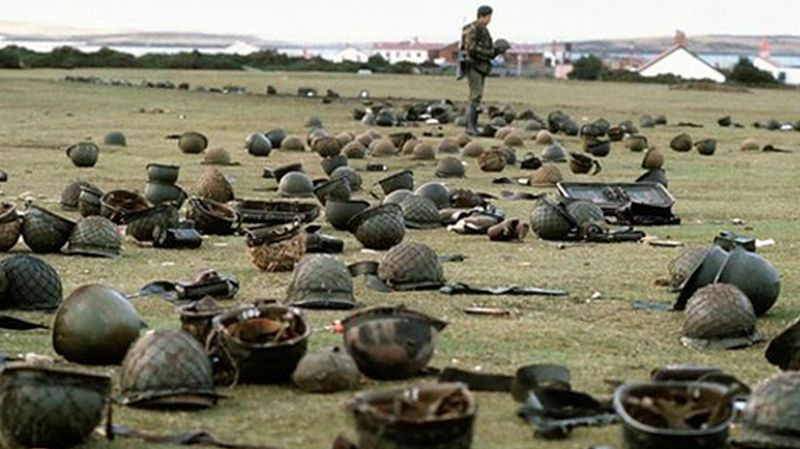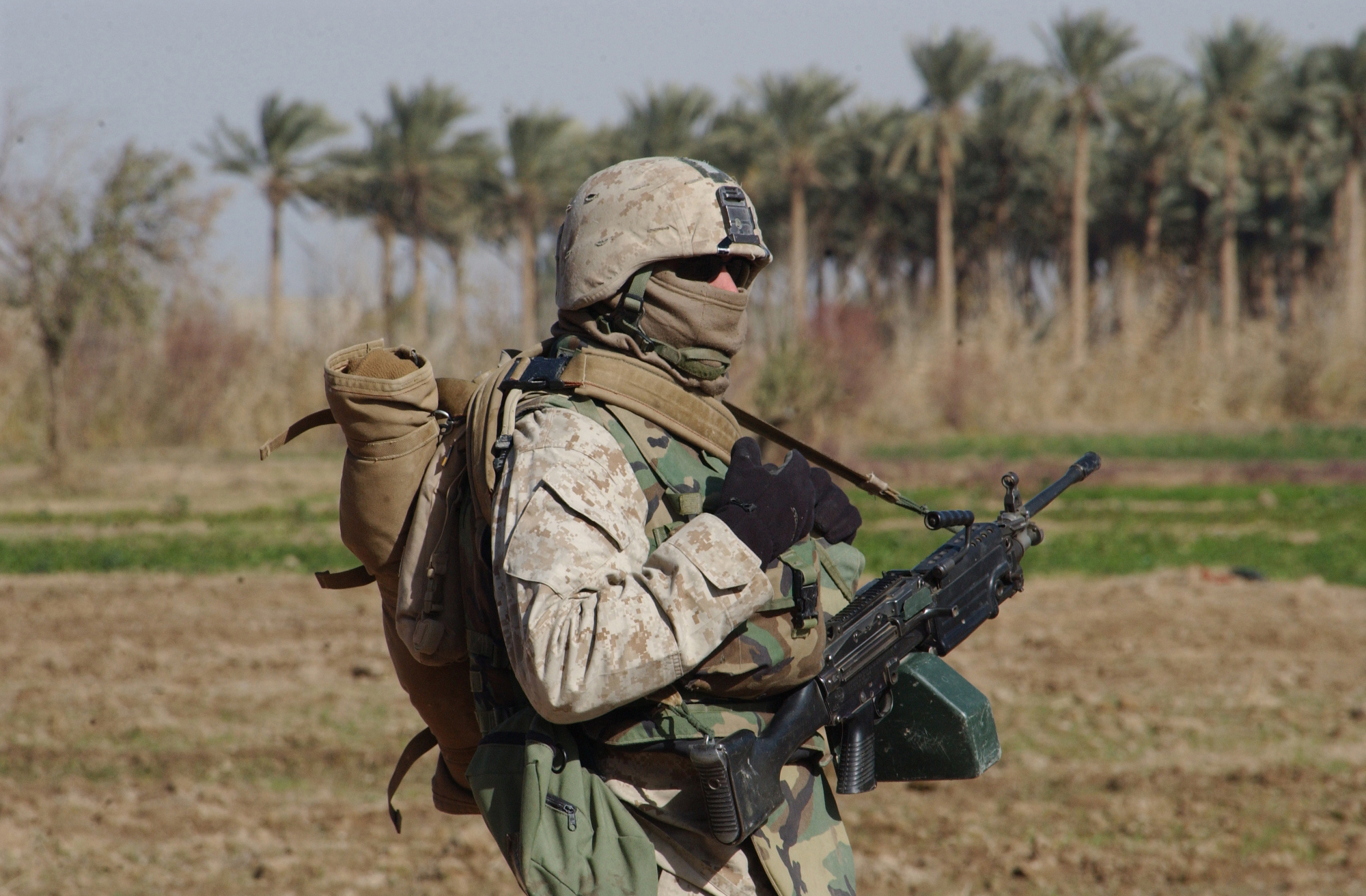During the Second World War, the Royal Air Force (RAF) and Fleet Air Arm (FAA) of the Royal Navy had to defend the United Kingdom against large-scale attacks by the Luftwaffe, Nazi Germany’s air force. The blockade began in July 1940, and its main objective was to compel Britain to agree to a peace settlement. The Luftwaffe targeted mostly costal-shipping convoys, shipping centers, and porta. In August, the focus switched to RAF airfields and infrastructure and later also extended to factories involved in aircraft production and finally to the bombing of areas of political significance and on civilians.
The Battle of Britain was the first major military campaign fought entirely by air forces. The battle is officially recognized to have lasted from 10 July 1940 to 31 October 1940, which overlaps with the large-scale night attacks known as the Blitz (7 September 1940 to 11 May 1041). The Luftwaffe’s failure to overwhelm the RAF forced Hitler to postpone and eventually cancel Operation Sea Lion, a potential amphibious and airborne assault on Britain.
Germany’s failure to destroy the United Kingdom’s air defences is considered the first major German defeat in World War II. The battle was later called Battle of Britain because of a Winston Churchill speech given to the house of commons:
“What General Weygand called the ‘Battle of France’ is over. I expect that the Battle of Britain is about to begin.“
It’s estimated that 14,286 civilians were killed and 20,325 wounded. About 1,744 British and 1,977 German aircraft were destroyed.
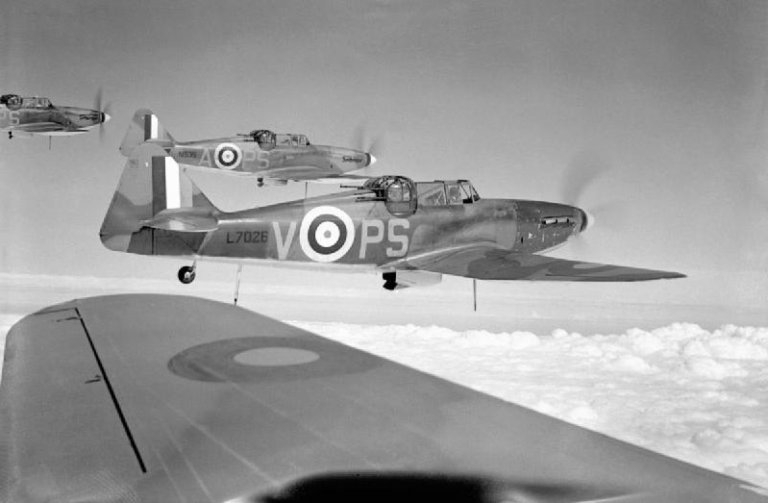
Medals Awarded for the Battle of Britain
The 1939-1945 Star
The 1939–1945 Star is a military campaign medal instituted on 8 July 1943 by the United Kingdom to award to subjects of the British Commonwealth for service in the Second World War during specified periods of operational service overseas (between 3 September 1939 and 2 September 1945). The broad criteria was 180 days of service with more specific criteria depending on service arm.
The Battle of Britain Clasp

The Battle of Britain clasp is a rare clasp issued to aircrew who fight in the Battle of Britain (at least one operational sortie between 00.01 hrs 10th July and 23.59 hrs 31st October 1940 and not just pilots of Spitfire and Hurricanes but also Defiant and Blenheim). The clasp bears the words “BATTLE OF BRITAIN” in capitals and was seen to the 1939-45 Star medal ribbon. A total of 2,936 men qualified for this clasp.
The Distinguished Flying Cross
The Distinguished Flying Cross (or DFC) was established in June 1918, shortly after the formation of the Royal Air Force (RAF), for officers and warrant officers of the RAF. In March 1941 eligibility was extended to Naval Officers of the Fleet Air Arm, and in November 1942 to Army officers, including Royal Artillery officers serving on attachment to the RAF as pilots-cum-artillery observers.
The DFC now serves as the third-level award for all ranks of the British Armed Forces for exemplary gallantry in active operations against the enemy in the air, not to the standard required to receive the Victoria Cross or the Conspicuous Gallantry Cross. All awards of the DFC are announced in the London Gazette.
The War Medal 1939-1945
The War Medal 1939–1945 is a British campaign medal instituted by the United Kingdom on 16 August 1945. The medal was awarded to subjects of the British Commonwealth who had served full-time (28 days of service) in the Armed Forces or the Merchant Navy for at least 28 days between 3 September 1939 and 2 September 1945.
The medal was also available for subjects commissioned or enlisted into British Forces who had not received a similar award from their own Governments. Also eligible were full-time paid members of the specially approved colonial and other military forces, militarised police and militarised civilian bodies. Personnel who were eligible for a campaign star but had had their service cut short by death, wounds or capture by the enemy, still qualified for the War Medal 1939-1945.
The Air Crew Europe Star
The Air Crew Europe Star is a military campaign medal instituted by the United Kingdom in May 1945. It was awarded to subjects of the British Commonwealth for service in the Second World War. No-one could be awarded more than five (now six) campaign stars and no-one could be awarded more than one clasp to any one campaign star.
The Air Crew Europe Star commemorated flying operations from the United Kingdom over Europe and was intended primarily for award to air crew. The strategic bombing campaign against German industrial cities, military installations and a wide variety of other targets continued throughout World War Two and made a decisive contribution to Allied victory.

